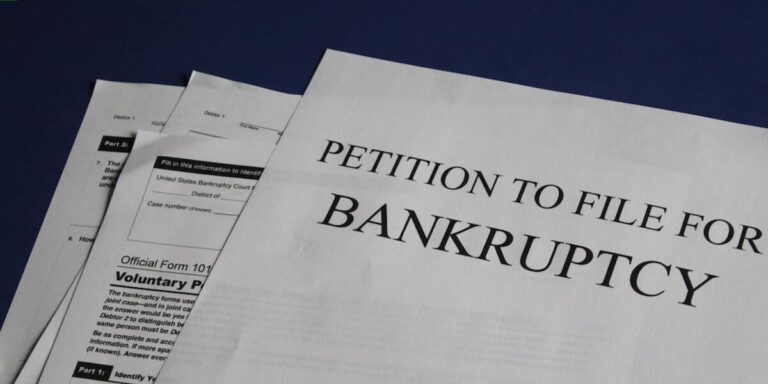Estate Planning For Guardianship Of Minor Children
Estate Planning For Guardianship Of Minor Children is an important topic to consider for anyone with young children. It involves making legal arrangements for the care of your children in the event of your untimely passing. It can be a difficult subject to think about, but it is crucial to ensure the well-being and future of your children.
By engaging in estate planning for guardianship of minor children, you can choose a trusted guardian who will take care of your children and make decisions on their behalf. This process involves drafting legal documents that outline your wishes, such as a will and possibly a trust. It is highly recommended to seek the guidance of an experienced estate planning lawyer who can help you navigate this complex process. Remember, your children’s future is at stake, so taking the time to plan ahead is an act of love and protection. Consider reaching out to a professional to discuss your options and gain peace of mind in knowing that your children will be taken care of according to your wishes.
What is Estate Planning
Definition of estate planning
Estate planning is the process of organizing and preparing for the distribution of your assets and the management of your affairs after your death or in the event of your incapacity. It involves creating legal documents, such as wills and trusts, that outline your wishes and ensure that your assets are transferred to your chosen beneficiaries smoothly and efficiently.
Purpose of estate planning
The purpose of estate planning is to have control over how your assets are distributed and to minimize potential disputes among family members. It allows you to plan for the welfare of your loved ones, especially when it comes to guardianship of minor children. Estate planning provides peace of mind, knowing that your wishes will be carried out and your loved ones will be taken care of according to your desires.
Importance of estate planning for guardianship of minor children
One significant aspect of estate planning is the consideration of guardianship for minor children. By appointing a guardian, you can ensure the well-being and care of your children in the event of your untimely death. Without a proper plan, the court may have to determine who will take on this responsibility, which can be a stressful and uncertain process for your children. Estate planning allows you to name a guardian and provide instructions regarding the upbringing and education of your children, giving you control over their future.
Understanding Guardianship of Minor Children
Definition of guardianship
Guardianship refers to a legal arrangement where an adult takes on the responsibility of caring for and making decisions on behalf of a minor child. A guardian has a duty to act in the best interests of the child and ensure their well-being and upbringing.
Legal requirements for appointing a guardian
When appointing a guardian, it is important to consider the legal requirements in your jurisdiction. Typically, the court will evaluate the potential guardian’s suitability, including their relationship with the child, their ability to provide for the child’s physical and emotional needs, and their willingness to take on the responsibilities of guardianship. It is important to consult an estate planning lawyer to ensure that the legal requirements for appointing a guardian are met.
Rights and responsibilities of a guardian
A guardian has the right to make important decisions on behalf of the child, such as determining their place of residence, making educational choices, and providing consent for medical treatment. Guardians also have the responsibility to care for the child’s basic needs, provide a safe and nurturing environment, and act in the child’s best interests.
Importance of naming a guardian in estate planning
Naming a guardian in your estate planning documents is crucial to ensure that your children are cared for by someone you trust and who shares your values and beliefs. By designating a guardian, you can have peace of mind knowing that your children will be raised according to your wishes and values. It is essential to regularly review and update your chosen guardian as circumstances may change over time.

This image is property of images.unsplash.com.
Choosing a Guardian
Factors to consider when choosing a guardian
When choosing a guardian for your minor children, there are several factors to consider. It is important to select someone who is willing and able to take on the responsibility of raising your children. Consider their relationship with your children, their values and beliefs, their parenting style, and their financial stability. It is also wise to discuss your decision with potential candidates to ensure their willingness to serve as a guardian and to address any concerns or questions they may have.
Discussing guardianship with potential candidates
Once you have identified potential guardians, it is advisable to have open and honest discussions with them about your wishes and expectations. It is important to ensure that they are fully informed and comfortable with the responsibilities associated with guardianship. This allows for a comprehensive understanding of your desires and helps build a strong support system for your children.
Alternatives if preferred guardian declines
In some cases, your preferred guardian may decline the responsibility of guardianship. It is crucial to have alternative candidates in mind and to discuss your intentions with them as well. Ensure that you update your estate planning documents accordingly to reflect your chosen backup guardians.
Updating the chosen guardian in estate planning documents
As mentioned earlier, life circumstances can change, and it is vital to review and update your estate planning documents periodically. This includes the designation of guardians for your minor children. By keeping your documents up to date, you can ensure that your chosen guardian is still available and willing to take on the role in the future.
Role of Estate Planning Lawyer
Importance of consulting an estate planning lawyer
Consulting an estate planning lawyer is essential to ensure that your estate plan is legally valid, meets your goals, and takes into consideration all relevant laws and regulations. An experienced attorney can guide you through the complex process of estate planning, including guardianship of minor children, and provide expert advice tailored to your specific needs.
How an estate planning lawyer can help with guardianship of minor children
An estate planning lawyer can help you understand the legal requirements and considerations when appointing a guardian for your minor children. They can ensure that the necessary documents, such as wills and trusts, are drafted properly to reflect your desires. Additionally, they can provide guidance on how to communicate your wishes effectively to potential guardians and assist with any legal processes that may be required.
Preparing legal documents for establishing guardianship
An estate planning lawyer will play a crucial role in preparing the legal documents necessary to establish guardianship for your minor children. This may include drafting a will that explicitly states your chosen guardian, as well as creating a trust to provide for the financial needs of your children until they reach adulthood.
Reviewing and updating estate planning documents periodically
Your estate planning lawyer will also assist you in regularly reviewing and updating your estate planning documents. As your children grow older or if your chosen guardian’s circumstances change, it may be necessary to amend your documents to reflect your current wishes. An attorney will ensure that your estate plan remains current and aligned with your intentions.
Creating a Will
Importance of a will in estate planning
A will is a legal document that outlines your wishes regarding the distribution of your assets after your death. It is a fundamental component of estate planning as it allows you to have control over how your assets are distributed and who will assume guardianship of your minor children.
Including guardianship provisions in the will
Within your will, you can include provisions that designate a guardian for your minor children. Clearly stating your chosen guardian and outlining their responsibilities and authority provides guidance to the court and minimizes potential disputes among family members. It is crucial to regularly review and update your will to ensure that the designated guardian is still the best choice for your children.
Naming an executor to handle the estate
In addition to naming a guardian, your will allows you to designate an executor, also known as a personal representative, to handle the administration of your estate. This individual is responsible for managing your assets, paying any outstanding debts or taxes, and distributing your assets according to the terms of your will.
Updating the will as circumstances change
Life is constantly changing, and it is important to update your will to reflect these changes. This includes changes in your financial situation, changes in your family composition, or changes in your designated guardian’s circumstances. Regularly reviewing and updating your will ensures that it accurately reflects your current intentions and maintains the validity of your wishes.
Establishing a Trust
Benefits of creating a trust
Creating a trust is a valuable estate planning tool for ensuring the financial well-being and protection of your minor children. A trust allows you to set aside specific assets and appoint a trustee to manage and distribute those assets for the benefit of your children until they reach a certain age or milestone.
Naming a trustee to manage assets for the minor children
When establishing a trust, you will need to name a trustee who will oversee the management and distribution of the trust assets on behalf of your minor children. This trustee can be a family member, a trusted friend, or a professional entity. It is important to choose someone who is financially responsible and capable of making sound decisions that align with your wishes.
Distribution of assets within the trust
The terms of the trust will outline how the assets within the trust are to be distributed for the benefit of your minor children. This may include providing for their education, healthcare, housing, and other essential needs. The trust can also specify how any remaining assets are to be distributed once your children reach a certain age or milestone.
Protecting the inheritance for the children’s future
A trust offers a level of protection for the inheritance you leave behind for your minor children. By designating a trustee, you can ensure that the assets are managed responsibly and only distributed for the intended purposes outlined in the trust. This provides added security and safeguards against potential mismanagement or misuse of the assets.

This image is property of images.unsplash.com.
Designating Beneficiaries
Importance of designating beneficiaries in estate planning
Designating beneficiaries is a crucial aspect of estate planning, as it ensures that specific assets are distributed to the intended individuals upon your death. By clearly identifying your beneficiaries, you can avoid potential conflicts or confusion regarding asset distribution.
Naming secondary beneficiaries
In addition to primary beneficiaries, it is wise to name secondary beneficiaries as a contingency plan. This ensures that if a primary beneficiary predeceases you or is unable to receive the assets, a secondary beneficiary will be designated to receive them. Naming secondary beneficiaries provides for flexibility and helps avoid complications in the distribution of your assets.
Considerations for minor children as beneficiaries
When designating minor children as beneficiaries, it is important to consider their age and maturity level. In some jurisdictions, minor children may not be able to directly receive funds or assets. In such cases, it may be necessary to establish a trust or name a custodian to hold and manage the assets until the child reaches a specified age.
Updating beneficiary designations as necessary
It is vital to regularly review and update beneficiary designations as your circumstances change. This includes major life events such as births, deaths, marriages, or divorces. Failing to update beneficiary designations can result in unintended consequences and assets being distributed to individuals who may no longer be appropriate beneficiaries.
Powers of Attorney and Healthcare Directives
Appointing someone to handle financial matters on behalf of the children
In the context of estate planning, appointing someone to handle financial matters on behalf of your minor children is crucial. A power of attorney allows you to designate a trusted individual to make financial decisions, manage assets, and handle other financial matters for your children in the event of your incapacity or death.
Creating a healthcare directive for medical decision-making
A healthcare directive, also known as a living will or advance healthcare directive, allows you to express your wishes regarding medical treatment and end-of-life decisions. By creating a healthcare directive as part of your estate plan, you can provide guidance to your chosen healthcare agent in making medical decisions on behalf of your minor children.
Reviewing and updating powers of attorney and healthcare directives
Regularly reviewing and updating your powers of attorney and healthcare directives is essential as your circumstances or preferences may change over time. It is important to ensure that the appointed individuals are still willing and able to take on the responsibility and that your wishes are accurately reflected in the documents.

This image is property of images.unsplash.com.
Insurance and Financial Planning
Importance of life insurance in estate planning for guardianship
Life insurance plays a critical role in estate planning, particularly for guardianship of minor children. Life insurance can provide financial security for your children, ensuring that their immediate and long-term needs will be met in the event of your death. The payout from a life insurance policy can assist with educational expenses, healthcare costs, and overall living expenses.
Types of insurance policies to consider
When considering life insurance policies, it is important to explore your options and select the one that best meets your family’s needs. Term life insurance policies provide coverage for a specified period, typically with lower premiums. Whole life insurance policies offer lifelong coverage and accumulate a cash value over time. It is advisable to consult with a financial planner or insurance professional to determine the most suitable policy for your situation.
Financial planning for the children’s needs
Estate planning involves financial planning for the needs of your minor children. This includes budgeting for their everyday expenses, education, and potential future costs. Having a comprehensive financial plan in place ensures that your children will be financially supported throughout their upbringing and into adulthood.
Regularly reviewing and updating insurance and financial plans
As with other aspects of estate planning, it is important to regularly review and update your insurance and financial plans. Changes in your financial circumstances, such as an increase in income or the acquisition of new assets, may necessitate adjustments to your insurance coverage and financial plans. Regular reviews ensure that your plans remain aligned with your goals and provide adequate support for your children.
Legal Considerations and Documentation
Understanding legal requirements for estate planning
Estate planning involves understanding the legal requirements specific to your jurisdiction. Laws and regulations can vary significantly, and it is essential to work with an experienced estate planning lawyer who is knowledgeable about the most current legal considerations. They can guide you through the process and ensure compliance with all legal requirements.
Gathering necessary documentation for estate planning
To effectively engage in estate planning, it is crucial to gather and have access to the necessary documentation. This includes documents such as birth certificates, marriage certificates, property deeds, bank account statements, investment statements, insurance policies, and retirement account information. Keeping these documents organized and easily accessible simplifies the estate planning process and ensures nothing is overlooked.
Organizing and storing important legal documents
Once you have gathered the necessary documentation, it is important to organize and store it securely. Consider using a fireproof safe or a secure digital storage solution to protect the documents from loss, damage, or unauthorized access. Additionally, inform your loved ones and key individuals about the location of these documents and how to access them in case of an emergency.
Informing family members and key individuals about the estate plan
Finally, it is vital to communicate your estate plan to your family members and key individuals involved. Letting them know about your wishes, the identity of the designated guardian, and the location of important legal documents can help ensure a smooth transition and minimize confusion or disputes. Regularly update these individuals as necessary, and encourage open lines of communication to address any concerns or questions they may have.
In conclusion, estate planning is a crucial process that allows you to protect and provide for your loved ones, especially when it comes to the guardianship of minor children. By understanding the key components of estate planning, including the role of an estate planning lawyer, the importance of a will and trust, designating beneficiaries, powers of attorney and healthcare directives, insurance and financial planning, and legal considerations and documentation, you can create a comprehensive estate plan tailored to your specific needs. Remember to regularly review and update your estate planning documents to ensure they remain current and aligned with your wishes. For personalized guidance and assistance, it is highly recommended to consult with an experienced estate planning lawyer. Take the first step toward securing your loved ones’ future by reaching out to an attorney today.






